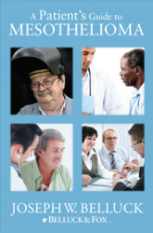
Cuban Cancer Vaccine Offers Hope to Mesothelioma and Lung Cancer Patients
When President Obama opened the doors to trade with Cuba this year, he gave the U.S. access to a promising lung cancer vaccine developed in Cuba. The country has developed the first vaccine, being called a “game changer,” shown to be effective against lung cancer. Now, many oncologists and mesothelioma specialists are watching closely in hopes that the vaccine could make the rare disease a thing of the past.
New York Governor Andrew Cuomo, along with Roswell Park Cancer Institute (RPCI) representatives, went on an April trade mission to Cuba in hopes of bringing the vaccine back to America. The successful trip resulted in an agreement with Cuba’s Center for Molecular Immunology to bring rights of the drug to RPCI, allowing researchers to begin clinical trials in the U.S., according to a May 14 article in the Huffington Post.
“People are anxious to see CimaVax come to the United States, and with good reason,” said Kelvin Lee, MD, Chair, Department of Immunology, Roswell Park, after returning from Cuba. “A revolutionary vaccine with the potential to slow the growth of this country’s most deadly cancer is certainly a thrilling prospect.”
In 2011, Cuban researchers announced that CimaVax EGF, developed and researched wholly in Cuba, is available and free for adult patients with stage IIIB/IV non-small-cell lung cancer. The vaccine, according to a Sept. 1 press release from Roswell Park, targets the epidermal growth factor (EGF) that stimulates cell growth. The drug effectively depletes EGF and, ultimately, starves the cancer, slowing its progress, and extending patients’ lives.
Cuban researchers conducted a “very extensive, large clinical trial,” according to Dr. Lee, showing that patients receiving CimaVax live longer than those receiving the standard of care treatment.
“CimaVax works – it prolongs people’s survival, it has almost no toxicity, it is easy to give (a shot in the shoulder once a month), and it is cheap – maybe just $1 or $2 a dose,” says Dr. Lee.
Like the “Basket Study” clinical trial that Mesothelioma Counsel reported on earlier this month, CimaVax does not target a particular cancer, rather it targets a “circulating growth factor” that may be found in many types of cancer – including mesothelioma.
Mesothelioma, a cancer of the lining of the lungs, abdomen or heart, caused by asbestos exposure, is highly aggressive and is resistant to many standard cancer treatments. There is no cure for the cancer that claims nearly 3,000 American’s lives every year.
CimaVax Prevents Cancer Recurrence
Dr. Lee explains that although the drug is called a vaccine, it is not a traditional vaccine that is given to children or adults to prevent the cancer from forming, however, it is effective in preventing cancer recurrence.
“The real exciting thing” about CimaVax, says Dr. Lee, is the idea that it may be able prevent cancer. Patients who have had surgery to remove the tumors, and are technically cured but have heavy damage to their lungs are at high risk of getting a second cancer. But now, all the medical team can do is watch the patient for recurrence.
However, Dr. Lee says, “If we can vaccinate them, and reduce the risk, that would be a huge advantage.”
“If we can use it the way that will impact the most number of people, potentially in the prevention setting, this will be a game changer,” Dr. Lee says.
The vaccine could be just as effective with mesothelioma patients, as with lung cancer patients, who have undergone surgery. Although surgeons strive to remove all of the cancer cells, recurrence of mesothelioma is very high.
Dr. Lee tempers his enthusiasm for the drug with the reality of the process required by the U.S. Food and Drug Administration to get the drug approved in the country. FDA’s initial inspection of the drug could take up to 18 months, after which a Phase I or II clinical trial will begin. He estimates it could take five years to complete the entire research process.
“We think it may be an effective way to prevent cancer from developing or recurring, so that’s where a lot of our team’s excitement comes in,” Dr. Lee said. “There’s good reason to believe that this vaccine may be effective in both treating and preventing several types of cancer, including not only lung but breast, colorectal, head-and-neck, prostate and ovarian cancers, so the potential positive impact of this approach could be enormous.”
Lung cancer is the leading cancer killer in both men and women in the United States, according to the American Lung Association. Nearly 450 Americans die from the cancer every day, with 158,040 Americans expected to die from the disease in 2015. Approximately 3,000 Americans are diagnosed with mesothelioma each year.

 Mike is a licensed attorney and the former editor of North Carolina Lawyers Weekly and South Carolina Lawyers Weekly. He has contributed numerous articles to the North Carolina State Bar Journal and is a co-author of Capital Lawyers, a history of the Wake County (NC) Bar.
Mike is a licensed attorney and the former editor of North Carolina Lawyers Weekly and South Carolina Lawyers Weekly. He has contributed numerous articles to the North Carolina State Bar Journal and is a co-author of Capital Lawyers, a history of the Wake County (NC) Bar.
 Gregory Froom is a licensed North Carolina attorney and the former editor of North Carolina Lawyers Weekly and South Carolina Lawyers Weekly.
Gregory Froom is a licensed North Carolina attorney and the former editor of North Carolina Lawyers Weekly and South Carolina Lawyers Weekly.
Leave a Reply